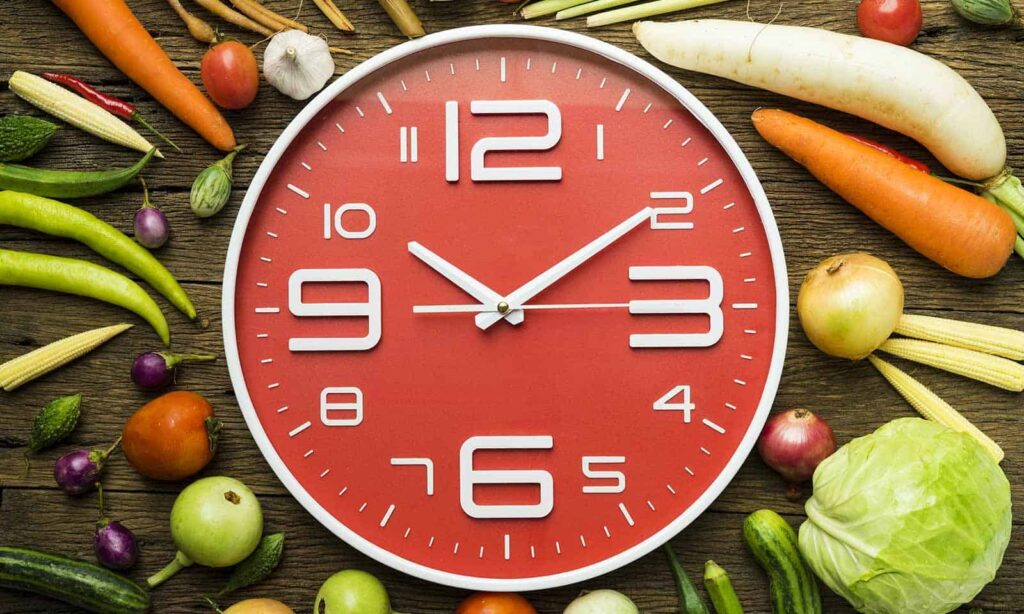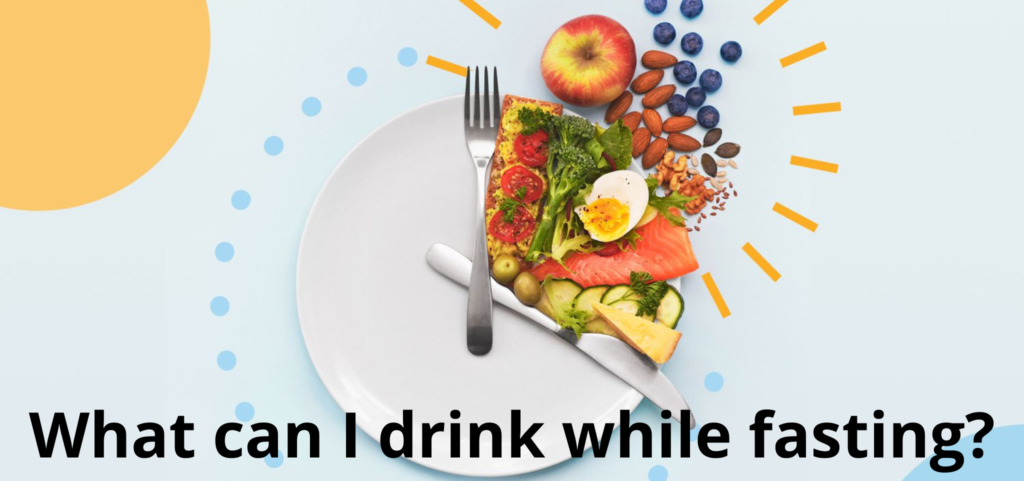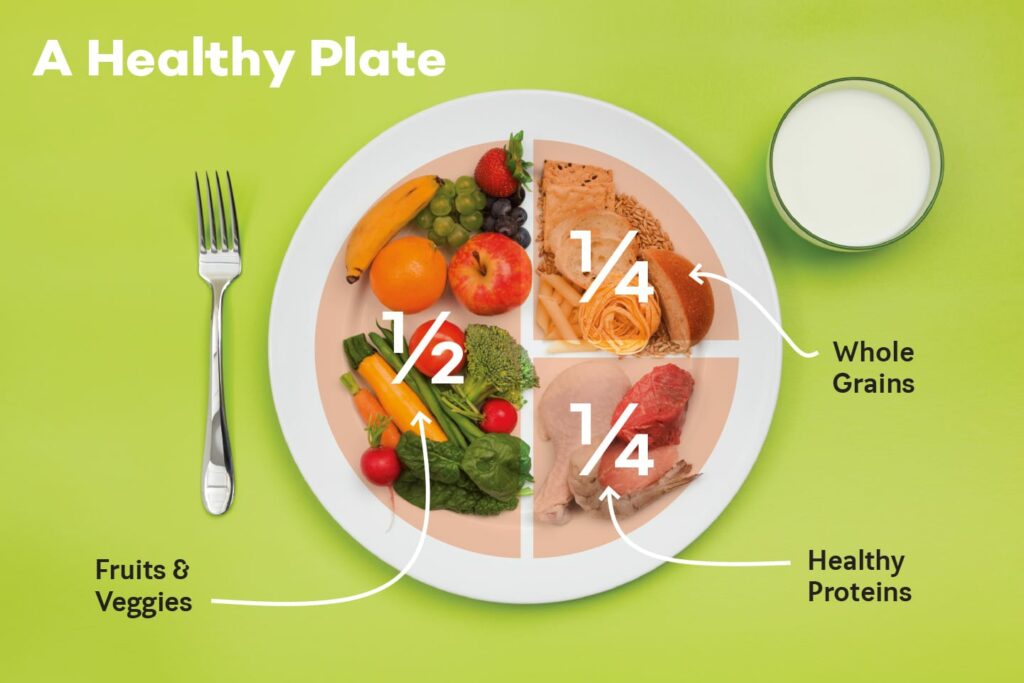
Intermittent fasting is a dietary pattern where you cycle between periods of eating and fasting. The main idea behind this approach is to restrict calorie intake for a certain period of time. During this time, the body is expected to switch from using glucose as its primary source of energy to using stored fat. So, what can you eat or drink while intermittent fasting?
Water is one of the most important things you can consume during fasting periods. Drinking water helps keep you hydrated and may even help suppress hunger. Additionally, herbal teas and coffee (without added sugar or milk) are also acceptable to consume. These drinks contain no calories and can be consumed in unlimited quantities.
When it comes to food, what can you eat or drink while intermittent fasting? You can eat anything that falls within your daily calorie limit during the eating periods. However, it’s important to choose nutrient-dense foods that are low in calories and will keep you feeling full for longer. This can include foods like fruits, vegetables, lean proteins, and whole grains.
It’s also important to avoid foods and drinks that are high in sugar and processed ingredients during fasting periods. These can include sugary drinks, candy, baked goods, and fast food. Consuming these foods can cause insulin spikes and may negatively affect the results you’re trying to achieve with intermittent fasting.
In conclusion, what can you eat or drink while intermittent fasting? During fasting periods, water, herbal teas, and coffee (without added sugar or milk) are your best options. During eating periods, choose nutrient-dense foods that are low in calories and avoid sugary and processed foods. By following these guidelines, you can ensure that you’re getting the most out of your intermittent fasting experience.
Foods to add to your diet during intermittent fasting
Intermittent fasting is a popular way to improve health and lose weight, but what can you eat or drink while intermittent fasting to make the most of it? During eating periods, it is crucial to consume nutrient-dense foods that will provide the body with the energy and nutrients it needs.
One type of food to consider adding to your diet during intermittent fasting is high-protein foods. These include chicken, fish, beef, eggs, and legumes. These foods are essential for maintaining muscle mass, especially during weight loss, and they can help you feel full for longer periods of time.
Another food to consider is fiber-rich foods like fruits, vegetables, and whole grains. Fiber is important because it helps regulate blood sugar levels, supports digestion, and keeps you feeling full. These foods are also low in calories, making them a great option for those trying to lose weight.
What can you eat or drink while intermittent fasting to boost metabolism? Adding healthy fats to your diet can help boost metabolism. Foods like avocado, nuts, seeds, and olive oil are great sources of healthy fats. These fats not only provide energy, but they also help the body absorb certain vitamins and minerals, like vitamins A, D, E, and K.
Finally, consider adding probiotic-rich foods to your diet during intermittent fasting. These include yogurt, kefir, sauerkraut, and kimchi. Probiotics support gut health and can improve digestion, which can help with weight loss and overall health.
In conclusion, what can you eat or drink while intermittent fasting to maximize the benefits? Adding high-protein foods, fiber-rich foods, healthy fats, and probiotic-rich foods to your diet during eating periods can help improve your health, boost metabolism, and support weight loss. These foods are nutrient-dense, low in calories, and can help you feel full for longer periods of time.
Foods to limit during intermittent fasting
Intermittent fasting is a popular way to improve health and lose weight, but it’s just as important to pay attention to what can you eat or drink while intermittent fasting as what you shouldn’t. Consuming certain foods during eating periods can negate the benefits of intermittent fasting and even harm your health.
One type of food to limit during intermittent fasting is processed and sugary foods. These include candy, baked goods, fast food, and sugary drinks. These foods contain high amounts of sugar and unhealthy fats, which can cause insulin spikes and lead to weight gain. They also lack essential nutrients, making them a poor choice for those looking to improve their health.
Another food to limit during intermittent fasting is high-carb foods like pasta, rice, and bread. These foods can cause rapid spikes in blood sugar levels, leading to insulin resistance and weight gain. They can also increase the risk of developing certain health conditions like diabetes.
Alcohol is another type of food to limit during intermittent fasting. Alcohol is high in calories and can disrupt the body’s normal metabolic processes. Additionally, alcohol can cause dehydration and negatively affect the body’s ability to burn fat.
Finally, it is important to limit caffeine intake during intermittent fasting. While coffee and tea are acceptable to drink during fasting periods, consuming too much caffeine can cause adverse effects like jitters, nervousness, and heart palpitations. Additionally, it is important to avoid adding sugar and milk to coffee and tea, as these can add unwanted calories to your diet.
In conclusion, what can you eat or drink while intermittent fasting to ensure the best results? Limiting processed and sugary foods, high-carb foods, alcohol, and excessive caffeine intake during eating periods is crucial for maximizing the benefits of intermittent fasting. By making these simple changes to your diet, you can improve your health and achieve your weight loss goals.
What can I drink while fasting?

During intermittent fasting, it’s important to pay attention to what can you eat or drink while fasting to ensure the best results. While solid food is restricted during fasting periods, there are still a number of beverages that are allowed and can help you stay hydrated and satisfied.
One of the most important drinks to consume during fasting periods is water. Water is essential for staying hydrated and flushing toxins from the body. It also helps to regulate body temperature and support healthy digestion. Aim to drink at least 8 glasses of water per day to support your health during fasting.
Another drink to consider during fasting periods is herbal tea. Herbal teas like green tea, chamomile, and peppermint are a great option because they are low in calories and contain antioxidants and other beneficial compounds. Herbal teas can also help you feel full and satisfied, reducing the urge to snack during fasting periods.
Black coffee is another beverage that is acceptable during fasting periods. Coffee is a natural stimulant that can help boost energy levels and support weight loss. However, it is important to limit caffeine intake during fasting periods and avoid adding sugar or milk to your coffee, as these can add unwanted calories to your diet.
If you’re looking for a low-calorie alternative to sugary drinks during fasting periods, consider drinking seltzer water or unsweetened coconut water. Seltzer water is a great option because it is low in calories and contains bubbles that can help you feel full. Coconut water is a natural source of electrolytes, making it a great choice for those who are physically active during fasting periods.
In conclusion, what can you eat or drink while intermittent fasting during fasting periods is crucial for maximizing the benefits. Water, herbal tea, black coffee, seltzer water, and unsweetened coconut water are all great options for staying hydrated and satisfied during fasting periods. By making these simple changes to your diet, you can improve your health and achieve your weight loss goals.
Foods and drinks for the fasting phase of intermittent fasting

Intermittent fasting involves alternating periods of eating and fasting, so it’s important to pay attention to what can you eat or drink while intermittent fasting during the fasting phase. During this time, you need to limit your food and beverage intake to maintain the benefits of fasting.
One of the most important drinks during the fasting phase is water. Drinking plenty of water can help you stay hydrated, flush out toxins, and maintain healthy digestion. Aim to drink at least 8 glasses of water per day during the fasting phase.
Black coffee is another beverage that is acceptable during the fasting phase. Coffee is a natural stimulant that can help boost energy levels and support weight loss. However, it’s important to limit caffeine intake and avoid adding sugar or milk, which can add unwanted calories to your diet.
Herbal teas like green tea, chamomile, and peppermint are also a good choice during the fasting phase. Herbal teas are low in calories, and they contain antioxidants and other beneficial compounds. Additionally, they can help you feel full and satisfied, reducing the urge to snack during the fasting phase.
It’s important to limit caloric beverages during the fasting phase, including sugary drinks, alcohol, and juice. These drinks are high in calories and can disrupt the body’s normal metabolic processes, negating the benefits of fasting.
In conclusion, what can you eat or drink while intermittent fasting during the fasting phase is crucial for maximizing the benefits. Water, black coffee, and herbal teas are all great options for staying hydrated and satisfied during the fasting phase. By limiting caloric beverages and avoiding solid food, you can achieve the benefits of fasting and improve your health.
Final Words
Intermittent fasting is a popular diet trend that involves alternating periods of eating and fasting. Understanding what can you eat or drink while intermittent fasting is crucial for maximizing the benefits of this diet and ensuring optimal health.
During the eating phase, it’s important to focus on nutrient-dense foods that are high in fiber and protein, such as vegetables, fruits, whole grains, lean proteins, and healthy fats. Limiting processed foods, added sugars, and unhealthy fats can help support weight loss and overall health.
In the fasting phase, the focus is on limiting caloric intake. Water, black coffee, and herbal teas are all acceptable beverages during the fasting phase and can help you stay hydrated and satisfied. Limiting caloric beverages like sugary drinks, alcohol, and juice is also important for maintaining the benefits of fasting.
It’s important to remember that everyone’s needs are different, and what works for one person may not work for another. It’s essential to listen to your body and make changes to your diet as needed to support optimal health and well-being.
In conclusion, what can you eat or drink while intermittent fasting is an important aspect of this diet. By focusing on nutrient-dense foods during the eating phase and limiting caloric intake during the fasting phase, you can achieve the benefits of intermittent fasting and improve your overall health. Consult a healthcare professional before starting any new diet, especially if you have any medical conditions.